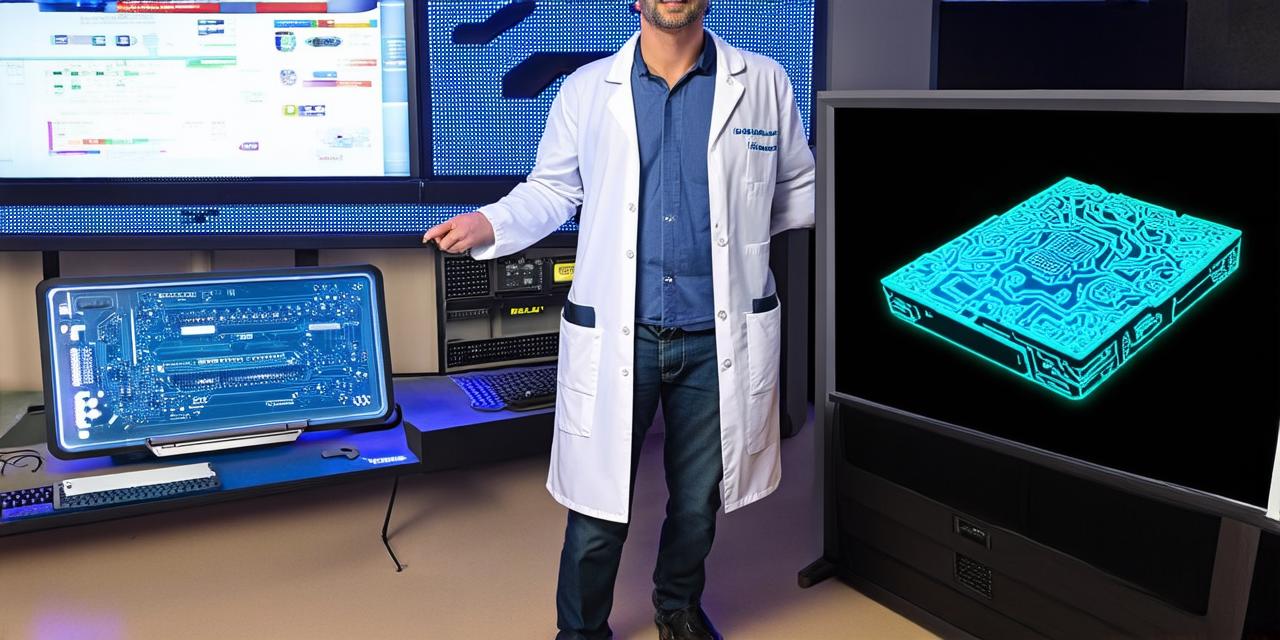Understanding the Role of Hardware Engineers in Game Dev
Hardware engineers are responsible for designing and implementing the physical components that make up a game console or PC. They work closely with other members of the development team, including software engineers, to ensure that the hardware is optimized for the specific needs of the game.
Some of the key responsibilities of hardware engineers in game dev include:
* Designing and developing new hardware components, such as CPUs, GPUs, and memory modules.
* Optimizing existing hardware components for improved performance and efficiency.
* Testing and debugging hardware components to ensure they meet specifications.
* Collaborating with other members of the development team to ensure that hardware and software work seamlessly together.
Requirements for Hardware Engineers in Game Dev
To become a hardware engineer in game dev, you will need to have a strong technical background in computer science or a related field. You should also have experience with hardware design and development, as well as a solid understanding of programming languages such as C++ and assembly language.
Some of the key qualifications for hardware engineers in game dev include:
* A Bachelor’s Degree in Computer Science or a related field.
* Experience with hardware design and development.
* Knowledge of programming languages such as C++ and assembly language.
* Familiarity with computer architecture and system design principles.
* Strong analytical and problem-solving skills.
Latest Technologies and Tools Used in Hardware Engineering
Hardware engineering is a rapidly evolving field, with new technologies and tools emerging all the time. Some of the key technologies and tools used in hardware engineering include:

* Computer-aided design (CAD) software, such as SolidWorks and AutoCAD.
* Simulation and modeling tools, such as LTspice and SPICE.
* Debugging and testing tools, such as oscilloscopes and logic analyzers.
* Programming environments, such as Visual Studio and Xilinx ISE.
* 3D printing technology, for prototyping hardware components.
Case Studies and Personal Experiences
To help illustrate the role of hardware engineers in game dev, let’s look at a few case studies and personal experiences.
Case Study: NVIDIA’s GeForce RTX 2080 Ti
In 2019, NVIDIA released the GeForce RTX 2080 Ti, which was hailed as one of the most powerful graphics cards ever made. The development of this card required the collaboration of hundreds of hardware engineers, software engineers, and other members of the development team.
The hardware engineers responsible for designing the GeForce RTX 2080 Ti had to balance a number of competing factors, including performance, power consumption, and cost. They also had to work closely with the software engineers to ensure that the card was optimized for specific games and applications.
Personal Experience: My First Hardware Engineering Project
As a college student majoring in computer science, I was fortunate enough to participate in my first hardware engineering project. The project involved designing and building a small robot that could navigate through a maze.
I worked closely with a team of hardware engineers to design the robot’s physical components, including the motor controller, sensors, and battery. We also had to work with software engineers to program the robot and make it perform specific tasks.
Through this project, I learned about the importance of collaboration and communication between different members of a development team. I also gained a deeper understanding of hardware design and development, which has helped me in my subsequent projects.



